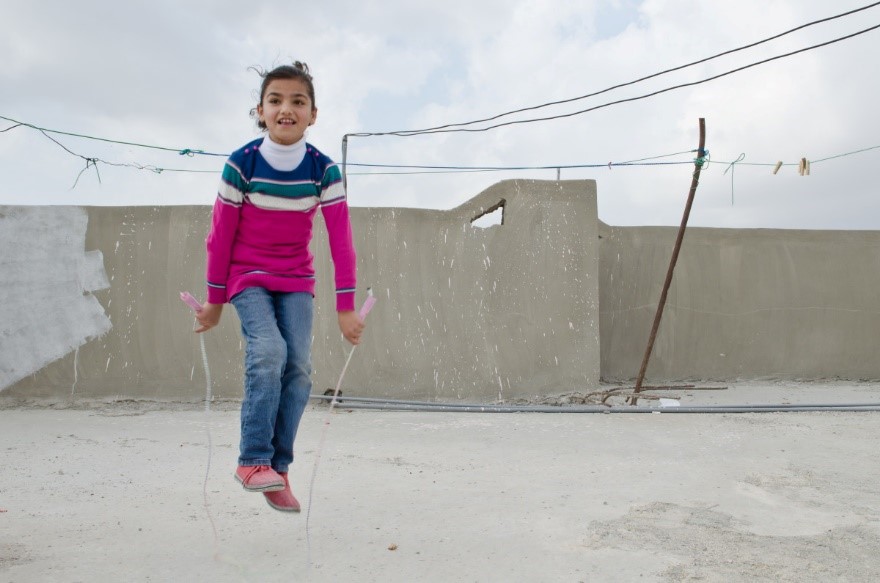Mariam is 20 years old. She lives in a house in Irbid, Jordan, with her parents, her brothers and sisters. Due to her disability, her parents are very protective of her.
Fleeing Syria 10 years ago
Mariam and her family arrived in Jordan ten years ago, in 2013. She and her mother came seeking medical care for injuries sustained in a bomb attack. Mariam lost her left leg and her right leg was badly injured. Her mother lost an eye and needed facial reconstruction surgery.
They fled Syria a few months after the tragedy, travelling at night to escape aerial attacks on the way. Mariam used crutches when she could, but when the terrain was too rough, her father carried her.
The horror of the bomb attack
Mariam vividly remembers the day of the bombing. It was in 2012. She was only 9 years old.
She was playing with other children in the street in front of her grandfather's shop. Her mother was inside and the rest of the family was at a friends’ house.
All of a sudden, two aircrafts flew overhead. Everyone panicked and rushed for cover. Mariam ran inside the shop and sheltered under the counter.
But a missile tore through the concrete wall of the shop. The debris of the explosion hit her mother in the face. She lost her right eye and suffered a skull fracture. Her grandmother was killed. Mariam’s left leg was torn off in the explosion and her right leg was badly injured. A second missile literally landed on top of her but luckily, it didn’t explode.
People rushed to rescue the wounded. She was driven to the hospital in the next city. In the chaos and panic, she was separated from the rest of her family.
“The whole way, the people in the car kept telling me to stay awake and not go to sleep. I remember the whole thing, as I didn’t pass out until I reached the hospital."
When they arrived at the hospital, the people driving the car left her at the entrance on the pavement and drove off. The last thing she saw before losing consciousness was a bright light.
When Mariam woke up the next day, an adult she didn’t know was in the room. It was the owner of a sweet shop opposite the hospital, who had carried her inside when the car left her.
She told him the name of her mother and gave him her uncle’s phone number - the only one she knew - which helped him locate her family.
"I still remember his number today."
The amputation was poorly performed, leaving the edges of the bone jagged, then stitched up and covered with just a gauze and bandage. She was released after a month.
A few months later, the whole family fled Syria for Jordan where her amputation was corrected. She received her first prosthesis from HI when she was 10 years old, followed by rehabilitation sessions.
“I was very close to the staff at HI. I was always a playful child. As I grow, every new prosthesis I’ve received since I was a child makes me feel reborn again."
Mariam still has nerve damage in her right foot, but she is able to walk with her prosthetic leg. She was given splints, but she couldn’t cope with them, finding them uncomfortable.
“Everyone is homesick, but going back to Syria is out of the question. It takes only one incident to learn from a mistake. We would never be able to survive mentally if we went back and there was another incident. We can’t just throw ourselves back into the 'fire', says Mariam’s father.

Sewing as a hobby
“I love sewing. It helps me get rid of my negative energy. I spend my time watching tutorials on YouTube to improve my skills.”
Recently, HI provided her with vocational training. She enrolled in a 4-month sewing course at Ejwan Academy in Irbid, after which HI supplied her with a sewing machine.
"When I’m older, I hope to set up my own sewing business; I consider this to be more of an achievable goal than a dream."
Now HI’s team is trying to persuade her father to allow her to work in a clothing factory to earn money. He doesn’t mind in principle, but he is very protective of her and says that he is worried about her taking public transport in her condition.




